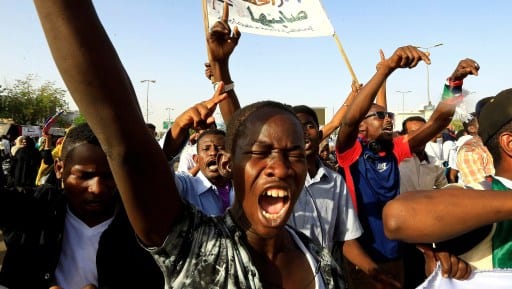As Sudan’s protesters ratchet up the pressure on the transitional military council to hand over power to civilian rule, they should also demand an end to their country’s role in the war in Yemen. Such a call is closely tied to the Sudanese protesters’ broader demands for an end to socio-economic inequality and to dictatorship.
While opponents of the war in Yemen have been rightly preoccupied with pushing for an end to U.K. and U.S. military support to the Saudi-led coalition, another potential avenue for bringing the war closer to an end lies in Khartoum.
Decades of social injustice and marginalization in Sudan triggered the months-long protests that ousted President Omar al-Bashir from power in April. They are also the reason that between 8,000 and 14,000 Sudanese paramilitary forces are fighting in Yemen. Sudanese mercenaries, many of them children from Darfur, have been lured into fighting on the ground in Yemen in exchange for financial compensation.
Suffering harsh social and economic difficulties at home, these Sudanese soldiers join the war in Yemen out of desperation. Without prospects for improved socio-economic well-being in Sudan, especially under the authoritarian rule of the recently ousted al-Bashir, Gulf countries offer them up to $10,000 to fight a war that has created the world’s worst humanitarian crisis since World War II.
The Saudis and the Emiratis, who lead the military coalition that has been fighting the Houthi rebels for more than four years, continue to operate remotely, sending their military commands to the Sudanese fighters on the ground. This has resulted in hundreds of deaths of young Sudanese men and boys who took up arms to help feed their families in Sudan, while engaging in a senseless war that has displaced millions and killed tens of thousands of innocent Yemenis through air strikes, mass starvation, and war-induced disease.
The continued involvement of these Sudanese fighters has also helped perpetuate this abhorrent war, together with the political and military support of Western powers, including the U.K., U.S., France, and Australia.
Protesters in Khartoum have made an extraordinary achievement in ousting al-Bashir after more than 30 years of rule, as well as ousting his first successor Lieutenant General Ahmed Awad Ibn Auf after only 24 hours in power. They continue to reject the rule of the transitional military council, now headed by Lieutenant General Abdel Fattah al-Burhan, and to demand a civilian-led transitional government.

